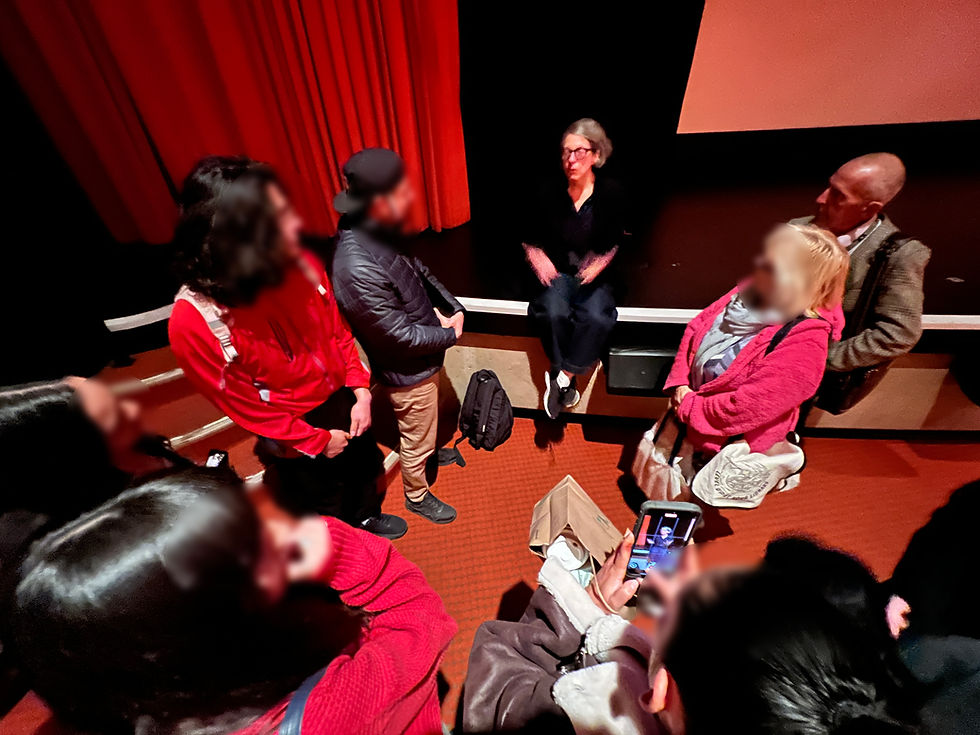When Courage Burns Too Bright: Reflections on One Flew Over the Cuckoo’s Nest
- Kent Kay
- Sep 23, 2025
- 3 min read

The first time R.P. McMurphy storms into the ward, he does not tiptoe in like the others. He barrels through, grinning wide, cracking jokes, clapping shoulders. The men around him have been lulled into silence for so long that they almost seem startled by the sound of life. That is McMurphy’s gift in the beginning. He refuses to match the rhythm of a room designed to make men small.
The moment that stays with me most is the World Series vote. McMurphy leans over the men and shouts, “You’re not a goddamn loony now, boy, you’re a fisherman.” It is not about baseball. It is about dignity. For a flash of time, he finds what Aristotle called the golden mean, the place between cowardice and recklessness. He lifts them up and shows them they are men.
But McMurphy cannot hold that balance for long. His fire burns too hot. When he learns that most of the men are there voluntarily, his face falls. He has been raging against the system on their behalf, while they could have walked away at any time. That revelation lands heavy. It is not just a plot twist, it is a reminder of how often we stay in places that no longer serve us, not because we are trapped, but because leaving feels too frightening.
I know that truth in my own life. For nearly 30 years, I worked as a television producer in cities across the country. The last 13 of those years I served as a Creative Director at a television station, a role that defined so much of who I was at the time. I am profoundly grateful for those years. Every script I wrote, every campaign I built, every deadline I fought to meet gave me skills and instincts that I carry into everything I do now. The industry shaped me, and without it, I could not have made the leap I eventually made.
Walking away was not easy. After three decades in a career that had given me so much, I chose to step into something uncertain. I left television to pursue an MFA and a PhD so that I could spend the rest of my life teaching, creating, and inspiring others to reach for higher levels of creativity. Watching McMurphy rage against the walls of a system made me think of that leap. He fought for others to see themselves as more than patients, and in my own way, I want my students to see themselves as more than who they believe they are right now.
McMurphy does not survive his own fire. The electroshock therapy scene, with his arms outstretched in defiance, shows courage turned into excess. Aristotle would call it folly. Yet the genre transforms his failure into something larger. The hospital is a symbol of every system that strips away individuality, and McMurphy’s refusal to be erased becomes a spark that ignites someone else. Chief’s escape is the proof that his struggle mattered.
That image of Chief ripping out the control panel, smashing through the window, and running into the open night is seared into my mind. You can hear the glass shatter. You can feel the air rushing in. You can almost breathe his freedom with him. When I think about that moment, I see my own leap from television into education. The difference is that my walls were not concrete and glass but comfort and familiarity. It still took all my strength to break them.
Chief’s run into the darkness is not just the end of the film. It is a metaphor for every student who realizes they do not have to stay small. My role now is not to give them another set of walls but to stand beside them until they find the courage to push against their own. And when they do, when they finally break free and run into the wide open space of their creativity, I hope the sound of that glass shattering stays with them forever, the same way it has stayed with me.



Comments